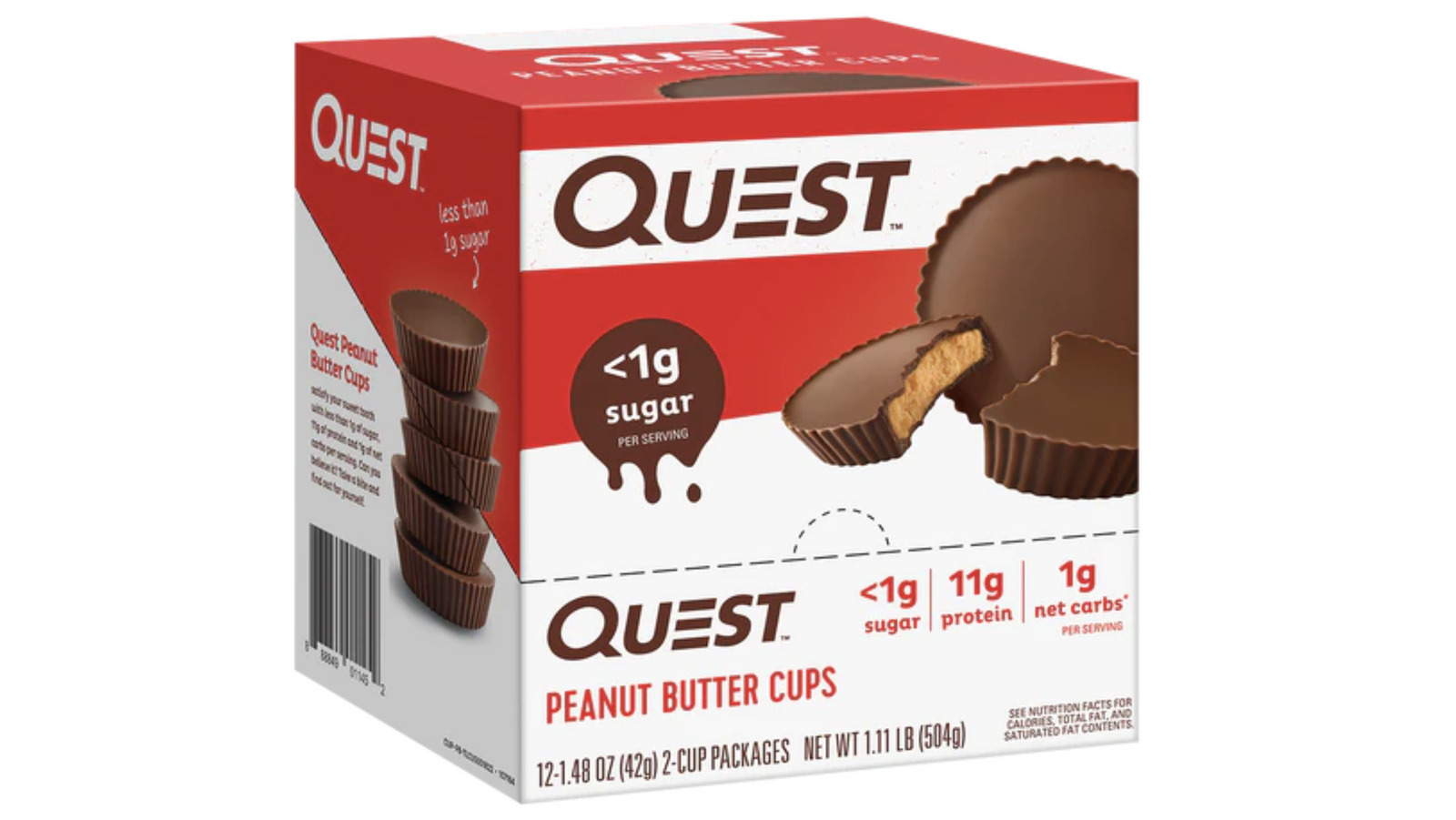[ad_1]

With less than 1 gram of sugar per serving, Quest Peanut Butter Cups could be considered healthy since they keep one’s sugar intake well below the recommended daily limit. According to the American Heart Association (AHA), men are advised to limit their added sugar intake to 36 grams a day and 25 grams daily for women. For comparison, a serving of Reese’s Peanut Butter Cups (2 cups) contains 22 grams of sugar, 20 of which are added sugar. With less than 1 gram of sugar, Quest Peanut Butter Cups have no added sugar. The snack is also gluten-free and keto-friendly, potentially making it a good choice for people adhering to certain diets.
One thing to consider, however, is that the company recently changed up some of their product ingredients due to supply shortages to include soy lecithin and/or vegetable oil, including soybean. Subsequently, these snacks would not be a safe choice for people with food allergies. Alternatively, Quest’s peanut butter cups contain palm kernel oil. While considered healthier than butter, Harvard Medical School explains that palm kernel oil contains over 85% saturated fat, which can increase “bad” cholesterol if eaten in excess. The peanut-buttery treat also contains erythritol, a natural sugar alcohol that has been celebrated for the fact that it doesn’t produce blood sugar spikes. While considered safe overall, some research suggests a link between erythritol and digestive discomfort, blood clots, and heart issues, although further research is required (via Healthline).
[ad_2]
Source link





